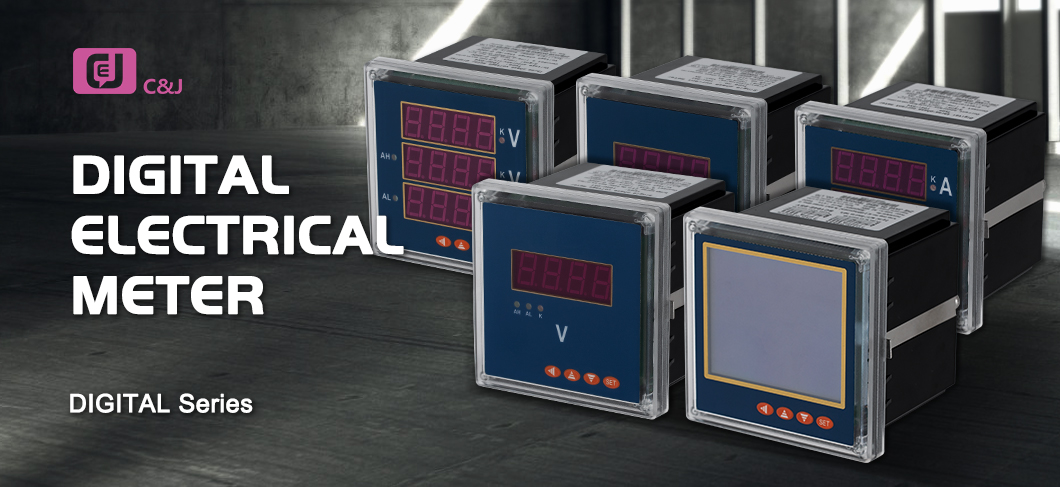Title: Evolution and Benefits of Digital Energy Meters
introduce
In today’s ever-evolving technological environment, traditional analog meters have given way to digital meters. Digital electricity meters represent a major innovation in electricity measurement, revolutionizing the way we track and manage electricity usage. The purpose of this blog is to explore the development and benefits of digital electricity meters, illustrating their increased accuracy, improved functionality, enhanced data analysis capabilities, and overall contribution to a more sustainable energy future.
1. The transition from analog to digital
The need for more accurate and efficient electricity metering is driving the transition from analog to digital meters. Analog meters, due to their mechanical parts and limited accuracy, often result in inaccurate readings, resulting in billing discrepancies and the inability to effectively monitor energy consumption patterns. Digital electricity meters, on the other hand, provide accurate, real-time data, ensuring reliable measurements and minimizing billing errors.
2. Improve accuracy and reliability
One of the main advantages of digital meters is their greater accuracy. Using advanced electronics and microprocessors, these meters are able to measure power consumption with incredible accuracy. Unlike analog gauges, which are prone to wear and tear (which further distorts readings over time), digital gauges are highly reliable and last longer.
Additionally, digital electricity meters eliminate the need for manual readings, reducing the possibility of human error during data collection. Automated data logging ensures accurate billing and facilitates fair and transparent financial transactions between consumers and utilities.
3. Enhanced functions and data analysis
Digital meters offer a variety of features that analog meters do not. These meters can provide consumers with real-time information about their energy consumption, enabling them to make informed decisions about their usage patterns. By monitoring consumption habits, individuals can identify potential areas for energy efficiency improvements, thereby reducing carbon footprints and energy costs.
In addition, digital electricity meters support the implementation of time-of-use (TOU) pricing. This pricing model incentivizes consumers to shift electricity usage to off-peak hours when grid demand is low. By offering different rates during peak and off-peak periods, digital electricity meters can facilitate optimal allocation of energy resources and help avoid grid overload.
Additionally, digital meters enable utilities to collect comprehensive data on energy consumption at the individual consumer level. This data can be used to develop more effective energy policies, identify areas of high use or waste, and plan infrastructure maintenance more strategically. These analytical capabilities help to better understand energy consumption patterns, leading to more targeted and sustainable solutions for managing electricity demand.
4. Integration with smart grid systems
Digital electricity meters are an integral part of the growing smart grid system. A smart grid is a network that uses digital technology to optimize the generation, distribution and consumption of electrical energy. By connecting the meters to a centralized monitoring system, digital meters enable utilities to proactively manage the grid, monitor power quality and respond quickly to outages or failures.
The integration of digital electricity meters into the smart grid supports consumers by providing them with real-time usage data through mobile applications or web portals. This information enables households and businesses to closely track their consumption, make informed decisions about energy use and potentially reduce the overall demand on the grid. Two-way communication enabled by digital meters also facilitates remote connect, disconnect, and demand response programs that encourage consumers to modify electricity usage during peak hours.
5. Conclusion: Towards a sustainable energy future
Digital electricity meters represent an important step towards a more sustainable energy future. Their improved accuracy, enhanced functionality, and integration with smart grid systems provide consumers and utilities with important tools to manage and optimize energy consumption. By improving energy efficiency and providing individuals with real-time electricity usage data, digital electricity meters help reduce greenhouse gas emissions, promote stable grids and ensure fair and accurate billing. As technology continues to advance, we can expect digital electricity meters to play an even more critical role in our journey towards a sustainable and energy-conscious society.
Post time: Jun-28-2023


